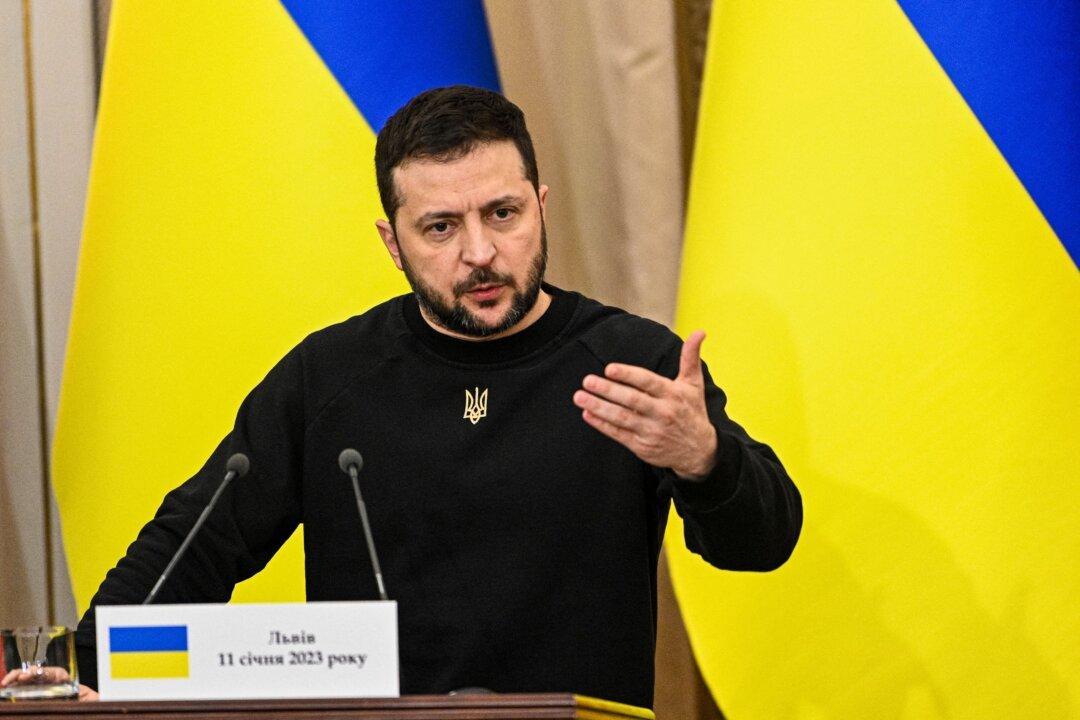
Ukrainian President Volodymyr Zelenskyy speaks during a press conference in Lviv, Ukraine, on Jan. 11, 2023. Yuriy Dyachyshyn/AFP via Getty Images
Ukrainian President Volodymyr Zelenskyy on July 7 visited Istanbul, where he held talks with his Turkish counterpart, Recep Tayyip Erdogan.
It was Mr. Zelenskyy’s first trip to Turkey—a longstanding NATO member—since Russia launched its invasion of Ukraine early last year.





